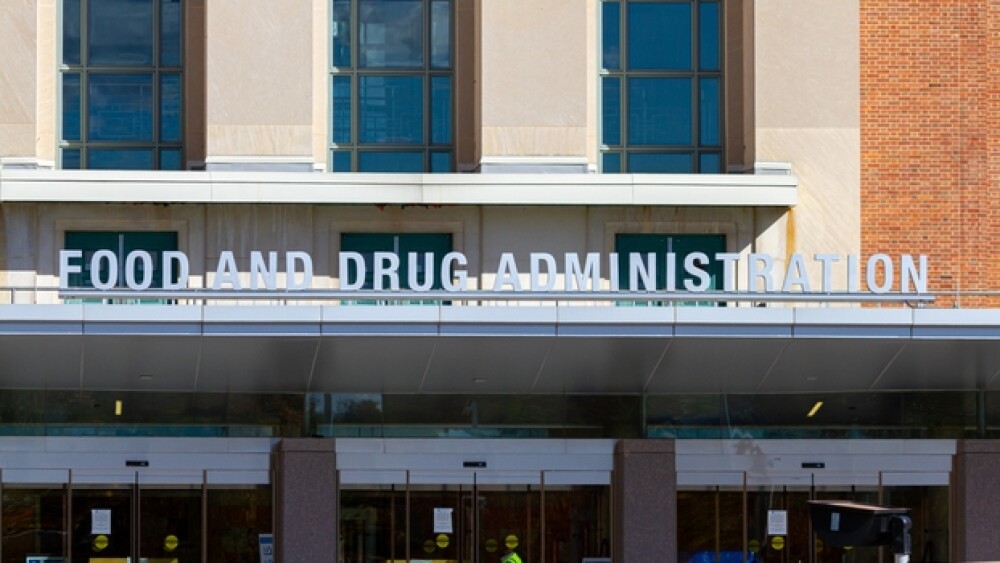The end of November and beginning of December is marked by several PDUFA dates at the U.S. Food and Drug Administration (FDA). Here’s a look.
grandbrothers/Shutterstock
The end of November and beginning of December is marked by several PDUFA dates at the U.S. Food and Drug Administration (FDA). Here’s a look.
Y-mAbs Therapeutics Danyelza for Relapsed/Refractory High-Risk Neuroblastoma
Y-mAbs Therapeutics has a target action date of November 30 for its Biologics License Application (BLA) for Danyelza (naxitamab) for patients with relapsed/refractory high-risk neuroblastoma. It was accepted for priority review on June 2. The drug was developed by researchers at Memorial Sloan Kettering Cancer Center and exclusively licensed to Y-mAbs.
The submission was based on the safety and efficacy data of the pivotal Phase II trials 201 and 12-230. Naxitamab is a monoclonal antibody that targets GD2, which is found on neuroblastoma and other related tumors. The antibody is designed to destroy GD2-expressing cancer cells by antibody-dependent cell-mediated cytotoxicity (ADCC) and complement dependent cytotoxicity (CDC).
Vanda Pharmaceuticals’ Hetlioz for Smith-Magenis Syndrome
Vanda Pharmaceuticals has a target action date of December 1 for the capsules and liquid formulation of Hetlioz for adults and children—the capsule formulation is a supplemental NDA (sNDA) and the liquid formulation is an NDA.
Smith-Magenis Syndrome is a developmental disorder caused by a small deletion of the 17p chromosome. In rare cases it is caused by a point mutation in the RAI1 gene in the deleted region. It affects about 1 in 15,000 to 25,000 live births in the U.S. It is associated with a variety of physical, mental and behavioral issues. The most common is a severe sleep disorder.
Hetlioz (tasimelteon) is a melatonin receptor agonist. It is approved in the U.S. and Europe for non-24-hour sleep-wake disorder.
Alnylam Pharmaceuticals’ Oxlumo for Primary Hyperoxaluria Type 1
Alnylam Pharmaceuticals had a target action date of December 3 for lumasiran for primary hyperoxaluria type 1 (PH1). The FDA approved the drug on November 24. PH1 is an ultra-rare genetic disease marked by overproduction of oxalate, which causes deposits of calcium oxalate crystals in the kidneys and urinary tract and can lead to painful and recurrent kidney stones, nephrocalcinosis, progression to kidney failure, and system organ dysfunction. It is the first treatment ever approved for this indication.
There are only about 1,000 to 1,700 PH1 patients in the U.S. and Europe. Typically, it is children who suffer from the disease.
“PH1 affects patients of all ages,” said Sally-Anne Hulton, consultant pediatric nephrologist, Birmingham Women’s and Children’s Hospital NHS Trust, UK. “PH1 patients develop kidney stones from the overproduction of oxalate, and in many we see a progressive decline in kidney function, which can ultimately lead to life-threatening end-stage kidney disease. Until recently the only treatment options available have been combined liver and kidney transplantation, with vitamin B6 slowing down kidney failure in a limited number of sensitive patients.”
Oxlumo decreases oxalate production. It is an RNA interference (RNAi) therapeutic. It works by degrading HAO1 mRNA and decreasing the synthesis of glycolate oxidase (GO), an enzyme upstream of the disease-causing defect in PH1.
In the ILLUMINATE-B pediatric Phase III trial, the drug demonstrated an efficacy and safety profile consistent to that in the ILLUMINATE-A trial in patients ages six and older with relatively preserved renal function and a documented diagnosis of PH1. The ILLUMINATE-A trial evaluated 39 patients who were randomized 2:1 to receive three monthly doses of Oxlumo or placebo followed by a quarterly dosing schedule. The drug hit the primary endpoint, percent change in 24-hour urinary oxalate. It demonstrated a 65% mean reduction in urinary oxalate relative to baseline compared to 12% in the placebo arm. This mean treatment difference was 53%. It also hit statistically significant results for all six secondary endpoints.
BioCryst Pharmaceuticals’ Berotralstat for Hereditary Angioedema Attacks
BioCryst Pharmaceuticals has a target action date of December 3 for its oral, once daily berotralstat for the prevention of hereditary angioedema attacks.
At the acceptance of the NDA in February 2020, Jon Stonehouse, BioCryst’s chief executive officer, said, “HAE patients and their physicians tell us they have been waiting for a once daily oral therapy to prevent attacks, and the acceptance of our submission, with a PDUFA date this year, means their wait is nearly over. We are sharply focused on building out a very experienced commercial team and executing our commercial plan, so we are ready to go fast when we get approval.”
On October 30, the UK’s Medicines and Healthcare products Regulatory Agency (MHRA) granted the oral, once-daily berotralstat a positive scientific opinion via the Early Access to Medicines Scheme (EAMS). Under the EAMS, HAE patients in the UK ages 12 and older can get access to the drug for routine prevention of recurrent attacks of HAE before it receives marketing authorization by the European Commission (EC).
HAE is a serious and potentially life-threatening, rare genetic disease marked by period episodes of acute swelling of the skin, pharynx, larynx, gastrointestinal tract, genitals and/or extremities. The European Medicines Agency (EMA) is reviewing the application for berolstat with an opinion expected somewhere around March 30, 2021.





